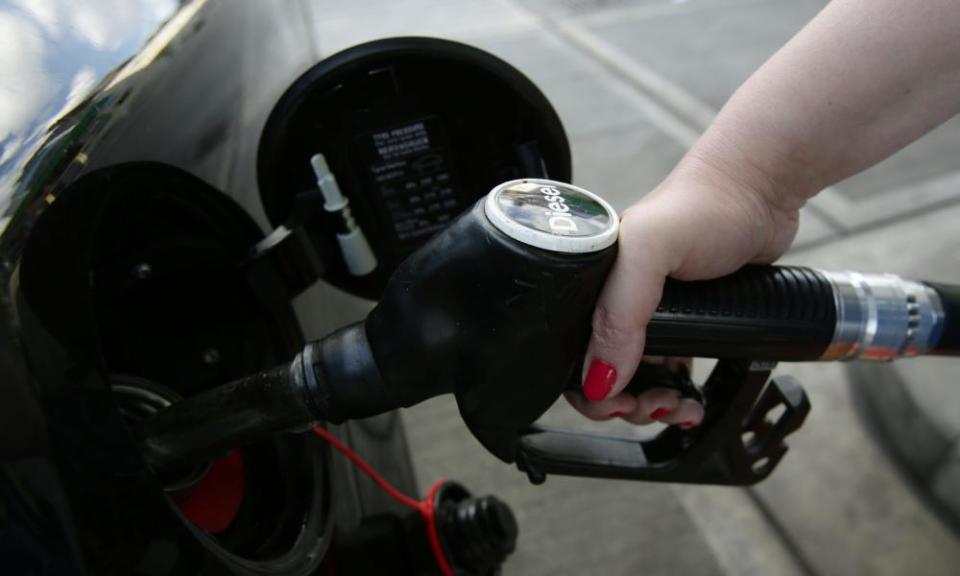Taxi drivers and business leaders call for diesel scrappage scheme

Taxi drivers and business leaders have added their voices to the growing campaign calling on ministers to introduce a diesel scrappage scheme to tackle dangerous levels of air pollution.
A broad alliance of business organisations and environmental charities has written to the chancellor, Philip Hammond, urging him to introduce a system in next week’s budget to compensate motorists switching from diesel to more environmentally friendly vehicles.
Senior MPs, environmental groups and senior doctors are part of the coalition who say a scrappage scheme is essential if the government is to tackle the air pollution crisis affecting many towns and cities in the UK.
The letter – signed by organisations including the Federation of Small Businesses, London First, Greenpeace and the Licensed Taxi Drivers Association (LTDA) – supports proposals put forward by the mayor of London, Sadiq Khan, for a national diesel scrappage fund that he argues would financially compensate motorists and enable the government to get a grip on illegal levels of toxic air.
It states: “We believe the mayor has adopted a cost-effective approach that minimises risks and simplifies administration for government.”
It says Khan’s proposals “rebalance the financial cost of improving our air away from the individual – unlocking significant emission reductions while reducing the cost for those least able to afford to upgrade their vehicle or change how they drive”.
Air pollution causes 40,000 early deaths in the UK and costs the country £27.5bn a year, according to a government estimate. MPs have called it a public health emergency.
On Saturday the Guardian revealed that tens of thousands of children and young people at more than 800 nurseries, schools and colleges in London faced dangerous and illegal levels of toxic air, much of it caused by diesel cars.
The transport secretary, Chris Grayling, indicated the government might bow to pressure, saying motorists should be wary of buying diesel cars, adding: “We’re going to have to really migrate our car fleet, and our vehicle fleet more generally, to cleaner technology.” However, he said that diesel “was not going to disappear”.
Under Khan’s proposals, which can be adapted for other UK cities, there would be:
Payments of £3,500 to scrap up to 70,000 polluting vans and minibuses in London and a national fund to support charities and small businesses that often own older diesel vans and minibuses.
A credit scheme valued at £2,000 to help low-income households in cities scrap up to 130,000 polluting cars, with incentives for car clubs and public transport.
Payments of £1,000 to help scrap up to 10,000 older polluting London taxis (in addition to extra Transport for London help for drivers to upgrade to greener taxis).
Paul Morozzo, from Greenpeace, backed the plans, saying it was now clear diesel fumes were “toxic to human health”.
“A scrappage fund is one of the niftiest ways to get dirty diesels off our roads. And for maximum take-up it should offer credits for car sharing or public transport, as a lower-cost alternative to buying a brand-new cleaner car under the scheme.”
Steve McNamara, the general secretary at the LTDA, said cab drivers were committed to tackling the decline in the capital’s air quality.
He said: “We fully support the mayor’s proposals for a national vehicle scrappage fund, which will make it fairer and easier for drivers to meet the cost associated with decommissioning the oldest, most polluting vehicles, helping us to become the greenest cab fleet of any city in the world.”

 Yahoo News
Yahoo News 